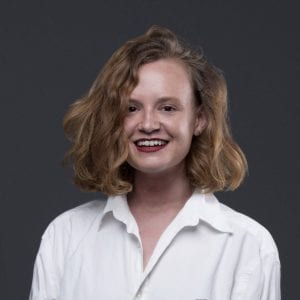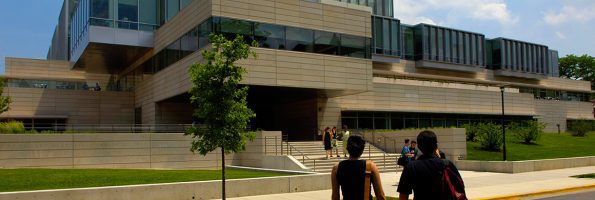Startup Lessons: LA MILLA

The path for startups can be treacherous. In the series “Startup Lessons,” we examine new MBA startups at the ground level to understand how they succeed.
The sustainability adage, often enough, can feel like empty marketing. Consumers want environmentally conscious products, but tracking a company’s real to commitment to that goal can often be difficult. There are, however, a handful of company’s that fulfill that ambition well, like LA MILLA.
Milan-based company LA MILLA, founded by Poland-born Natalia Kalali, is a highly environmentally-conscious fashion retailer, with products made exclusively from Global Organic Textile Standard certified cotton and is completely absent of plastic. In addition, the company has partnered with Eden Reforestation Projects, a California-based NGO, which helps plant five trees for every LA MILLA item sold.
Kalali’s vision, along with the litany of jobs she’s helped cultivate in Italy, partially stems from her MBA education at MIP Politecnico di Milano. “[The] MBA at MIP Politecnico di Milano gave me a very good base and understanding of business in general,” she tells MetroMBA. “Moreover, during my studies, as part of the coursework, I had an opportunity to work on a start-up. It was the Project Work assignment and my first start-up experience.”

“MIP Politecnico di Milano has a very good reputation and is well classified in the diverse rankings,” she continues. “What convinced me towards MIP the most was their diverse academic program and an opportunity to work directly with some companies already during the MBA program.”
The Milan school is currently 96th overall in the most recent Financial Times Global MBA ranking, but enjoys top 10 individual rankings by the publication both in “international experience” (10th) and “international faculty” (3rd). That wealth of internationality helped cultivate Kalali’s company.
“I met many people from the business world, which made a great impact on my career, by giving me the opportunity to learn from them, and get more exposure to the actual inside of the world of business,” she says. “Not only academic staff, but also MBA colleagues—everybody with different backgrounds and origin. It was truly a very international and multicultural environment.”
“LA MILLA would not exist today if not my international experience and what I have learned by working with people from different cultures and backgrounds. I strive to make LA MILLA an internationally recognized ECO brand for all ECO conscious women.“
However, LA MILLA was not simply born out of Kalali’s academic inspiration; it was also fear. According to the official company website, Kalali says “I was worried about my children’s future.”
Kalali, a mother of two, founded LA MILLA after a particularly difficult transition. After years of maternity leave, she found companies weren’t too eager to hire a young mother. Taking matters into her own hands and with climate degradation in mind, Kalali continued her education with the pursuit of several online courses based out of the U.S. and Canada. “The objective of one of those courses was to develop an app,” she writes. “Once enrolled I learned that I needed to develop my own business idea too. This was truly a groundbreaking moment for my career (…) It became clear to me, that my goal was to open my very own, eco-friendly company!”
As for the future of her company, Kalali believes the future of even more environmentally-conscious consumers will gravitate to LA MILLA, as ECO efforts become more important.
“In the world of internet and easy access to information, consumers are becoming smarter, more informed and aware of what is happening to our climate,” she says. “They are increasingly moving towards sustainable brands. I believe that LA MILLA is on the right path to deliver them the product and the brand that they are searching for.”
For more information, and to shop, head over to the official LA MILLA website.
Americans Are Disconnected With Upward Mobility, Says New Kellogg Research – Chicago News

Let’s explore some of the most interesting stories that have emerged from Chicago business schools this week.
How Closely Do Our Beliefs About Social Mobility Match Reality? – Kellogg Insight
New research from Northwestern Kellogg Assistant Professor of Managerial Economics and Decision Sciences Edoardo Teso assessed mobility rates among social classes in the U.S., U.K., France, Italy, and Sweden and found that Americans’ overestimated and Europeans underestimated “people’s chances of climbing from the bottom to the top of the economic ladder.”
According to the article, Teso wonders whether the disconnect between people’s perceptions compared to the reality of social mobility might “explain why the United States often resists income redistribution policies such as higher taxes for the wealthy, while many European nations embrace them.”
“These perceptions are really deeply rooted,” Teso notes.
“America is famously a land of immigrants where many people did in fact build their own fortunes. In contrast, Europe practiced feudalism for centuries, during which a person’s fate was largely governed by their family circumstances,” Teso’s research claims.
You can read more about research here.
PIMCO and University of Chicago’s Center for Decision Research Announce Partnership to Guide Wiser Decision-Mking – Booth School of Business News
To commemorate the partnership between Chicago Booth’s Center for Decision Research (CDR) and PIMCO, an “innovator in applying research to investment decisions,” the CDR laboratories will be rechristened the PIMCO Laboratories for Decision Research, which will “yield scientific discoveries with the potential to improve individual and social welfare.”
PIMCO Group CIO Dan Ivascyn writes, “Through this novel partnership, we hope to nurture exceptional insights into decision making behavior that will ultimately help PIMCO make wiser decisions for portfolios, clients and employees.”
Booth Dean and George Pratt Shultz Professor of Accounting Madhav Rajan writes, “PIMCO’s spirit of experimentation and interest in asking real-time questions about investing and the economy make it the ideal partner for Booth.”
According to the press release, the PIMCO Decision Research Laboratories will “include a new ‘storefront’ behavioral science research lab to foster greater engagement with the public and to broaden the reach and increase diversity of participants in the research studies.”
Rajan continues, “From PIMCO’s plans to disseminate CDR’s research findings, to conducting joint projects in behavioral science, the collaboration will have a transformational impact on our research enterprise.”
You can read more about the partnership here.
MBA Student Carley Mostar Secures Funding for Her Community – UIC Business Blog

Carley Mostar, Gies MBA ’19
The UIC Liautaud Graduate School of Business recently profiled Carley Mostar, MBA ’19, whose “Info Park” project secured $25,000 in funding from the Ford College Community Challenge (Ford C3).
Conceived as a collaboration between Mostar, the UIC School of Architecture, and the community of East Garfield Park, Mostar dreamt a plan to transform “one of the lots into a member-use space for the community to use as our own public or private space.”
Mostar and the group have hit the ground running, working with “community engagement workshops and have even started researching fabricators and vendors to work with in preparation for construction, slated to start in early spring of 2019.”
Mostar explains the importance of incorporating the voices of the community into her “Info Park” plan.
“It’s very important to me when doing this kind of work to make sure that the people who the work is for have their voices centered in the outcome of the project,” she says in a recent interview.
You can read more about Mostar and the project here.
Choosing the Best MBA: Philadelphia vs. Washington DC

On the surface, cities like Philadelphia and Washington DC appear to have a lot in common. Both have occupied roles as a center of U.S. history, and have transformed into exciting and ever-changing metros for both established businesses and new startups. If you’re interested in earning an MBA in a top metro area on the East Coast, it might seem impossible to choose between the two.
Even so, Philadelphia and DC offer a number of exciting—but different—kinds of opportunities for up-and-coming business professionals. Between what program you want to pursue and what kind of career you envision yourself in down the line, understanding the differences between top metros can be a crucial part of planning your future. Below, we’ll break down some of the biggest differences in location, programs, and job placement for each metro.
Philadelphia vs. Washington DC: The Differences
For ambitious business students hoping to put their education to work in a government agency, it’ll be hard to beat the nation’s capital for opportunities and experience. Even for those looking outside of the government setting, the DC metro area is home to fifteen companies on the Fortune 500 list, including corporate giants like Exxon Mobile and Walmart. Yet while such heavy hitting companies in the area provide a high earning potential, MBAs will still want to consider the high price of living in DC: currently, the city ranks as the third most expensive place to live in the country.
Check This Out: Searching for the World’s Top MBA Recruiters: Comcast
While Philadelphia may not be the city that pops into your mind as a bustling center of business, research shows the City of Brotherly Love can’t be beat when considering the job market and affordability: a 2016 survey from Adobo found that Philadelphia’s unemployment rate was 20 basis points below the national average, while the average price of a home was at or below 30 percent of the average income. MBA graduates will find no shortage of business opportunities in the city, even among major firms: in 2017, 20 companies in the Philadelphia metro made the Fortune 500 list.
Washington DC’s Full-Time MBA Programs
Featuring more than 35 higher education institutions with post-bachelor business programs, Washington DC is home to some of the top MBA programs in the United States. Fully aware that many of these programs will shape future politicians and government leaders, many of the MBA programs in Washington DC include a focus on integrity and ethics within the global business community.
Full-Time MBA Programs in DC Include:
- George Mason University School of Business
- George Washington University School of Business
- Kogod School of Business – American University
- University of Maryland R.H. Smith School of Business
- McDonough School of Business – Georgetown University
Philadelphia’s Full-Time MBA Programs
When it comes to business schools, Philadelphia is probably best known for The Wharton School at the University of Pennsylvania, consistently named as one of the top business programs in the world. But Philly is also home to a wide range of programs with a variety of specializations. Programs like the full-time MBA at Temple University’s Fox School of Business also offer students to take their education beyond Philadelphia, with international campuses based in Italy, London, and Japan.
Full-Time MBA Programs in Philadelphia Include:
- La Salle University
- LeBow College of Business – Drexel University
- Villanova School of Business
- West Chester University
Cost of MBA Programs
Just as important a factor as cost of living, average cost for an MBA program is an important consideration when choosing where to earn your degree. As expected, top programs in both Philadelphia and Washington DC can come with a high price tag. The average cost estimate for one year at Wharton is $105,265, while tuition at DC’s Georgetown McDonough School of Business is $90,591. The average for each city, however, remains much for affordable: approximately $82,090 for programs in Washington DC, and slightly lower in Philadelphia—schools like West Chester even offer an MBA as low as $21,000 per year.
Job Placement and Salary
With so many incredible companies located in both Washington DC and Philadelphia, MBAs have the chance to earn top salaries that can go a long way in both cities. Depending on the position, MBAs in Philadelphia can make anywhere from $64,665 per year (as a financial analyst) to $104,186 per year (as a senior product manager). In Washington DC, the average salary for an MBA graduate is in the $80,000 range, with employees reporting yearly salaries of $74,758 (operations manager) up to $111,983 (marketing director).
Five Chicago Booth MBAs Named Siebel Scholars, One Named McGowan Fellow

The University of Chicago recently announced it’s Siebel Scholars and McGowan Fellow for 2018, with five MBA students from the Booth School of Business being recognized for their academic achievement and leadership, and awarded scholarship money for their efforts.
Darrick Chan, Kathleen Davis, Monica Kalwani, Igo Shkilko, and Yihan Tan make up this year’s group of Booth Siebel Scholars. Each second-year MBA student received $35,000 each toward their final year of MBA tuition.
Siebel Scholars are nominated their schools deans for their academic excellence, and leadership in the fields of business, computer science, bioengineering, and energy science. Established in 2000, the Siebel Foundation presents grants to more than 90 graduate students from 16 universities in the United States, China, France, Italy, and Japan. On average, Siebel Scholars rank in the top 5 percent of their class, and many rank within the top 1 percent.
Meanwhile, Pedro Amoroso Lima was named Chicago Booth’s McGowan Fellow for 2018 thanks to his commitment to ethical leadership. Lima is one of 10 McGowan Fellows nationwide this year. These students will work together on a social impact project that will tackle a particular challenge.
Established in 2010 by the William G. McGowan Charitable Fund, a Chicago-based family foundation, the McGowan Fellows program awards full-year tuition to select students. The program aims to provide the resources and guidance to young professionals to become ethical, accountable leaders and role models for generations to come.
These are not the only scholarship and fellowship opportunities for Chicago Booth full-time MBAs. Full and partial tuition is awarded through merit-based awards, Chicago Booth Fellowships, and Corporate Fellowships. Merit-based awards do not require a formal application beyond the normal process of applying to Booth.
Like the merit-based awards, the 15 different Chicago Booth Fellowships have no formal application process, although interested Booth applicants are encouraged to contact the Office of Admissions (7773.702.7396) for more information. Fellowships are awarded under the categories of: Academic, Diversity, Industry, Leadership, Military, Regional, and the Yellow Ribbon Program.
Oxford MBA Receives Emmy Nomination for Amanda Knox Documentary

Learning about the business side of filmmaking isn’t one of the more common reasons to pursue an MBA, but it’s exactly why Stephen Robert Morse attended Saïd Business School at the University of Oxford. It was through this experience that Morse went on to produce the 2016 Netflix documentary Amanda Knox, which explores the 2007 murder of British student Meredith Kercher in Perugia, Italy, as well as Knox’s resulting imprisonment, retrials, and eventual acquittal. For his work, the film has been nominated for an Emmy award in the category of Best Documentary or Nonfiction Special. Continue reading…
Oxford MBA Students Complete International Strategic Consulting Projects

MBA students from Saïd Business School recently completed their strategic consulting projects (SCPs) for 29 organizations in 16 countries around the world, including Tanzania, Qatar, Italy, the US, Zambia and India.
Each year, small teams of MBA students complete a challenging eight-week-long project for a sponsoring organisation, applying their learning to specific issues or business opportunities identified by the company. The SCPs are located in a broad range of sectors and the nature of the briefs is equally diverse. This year’s projects included improving the delivery of financial services to rural Ethiopians, analysing the ways in which technology could improve healthcare delivery in India, and studying the feasibility of a UK spaceport.
Continue reading…
